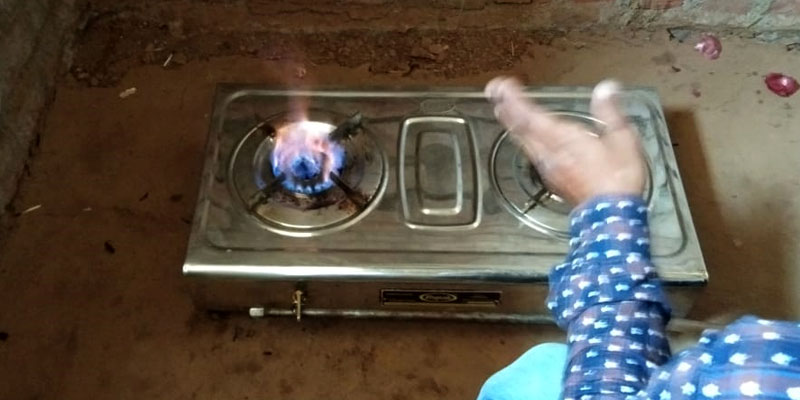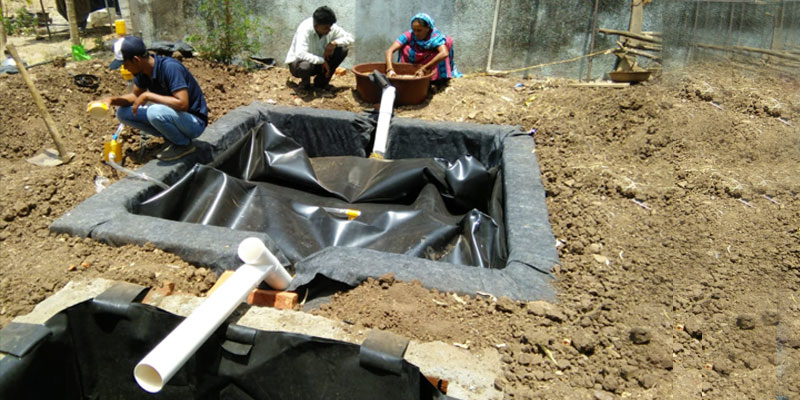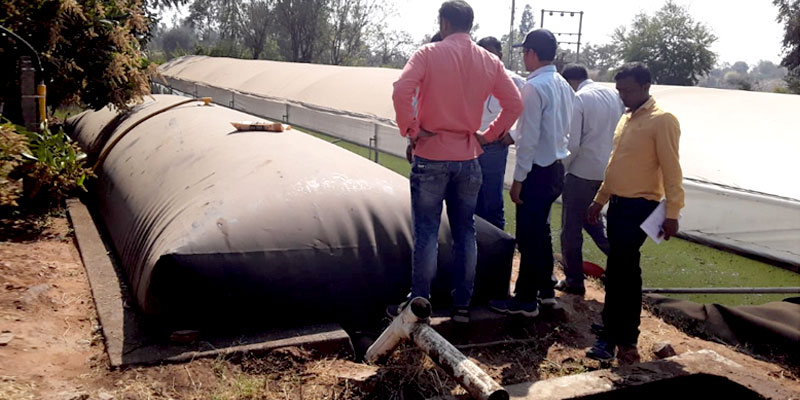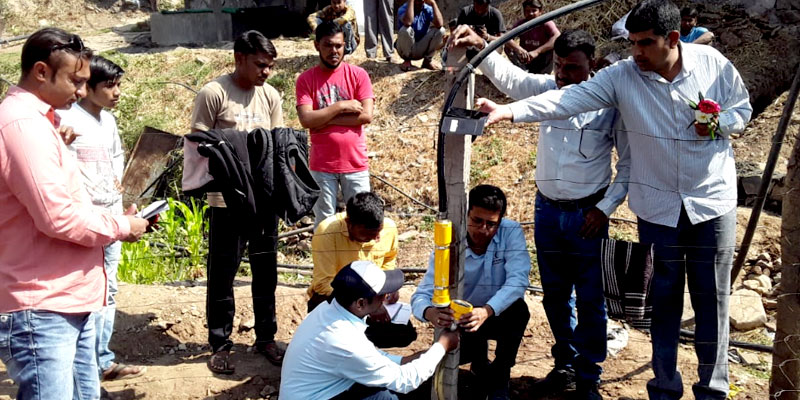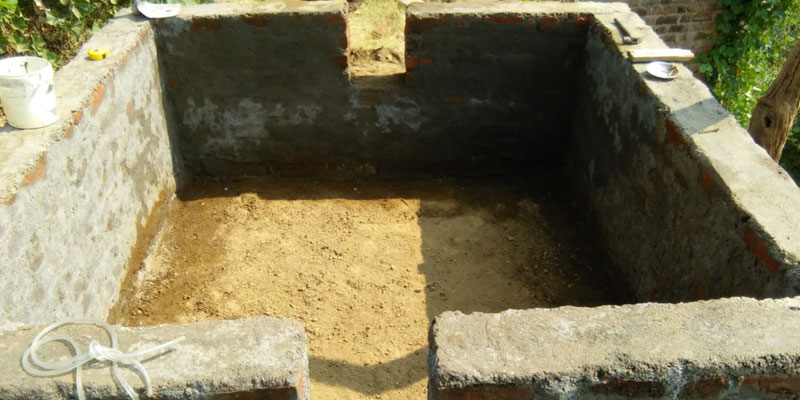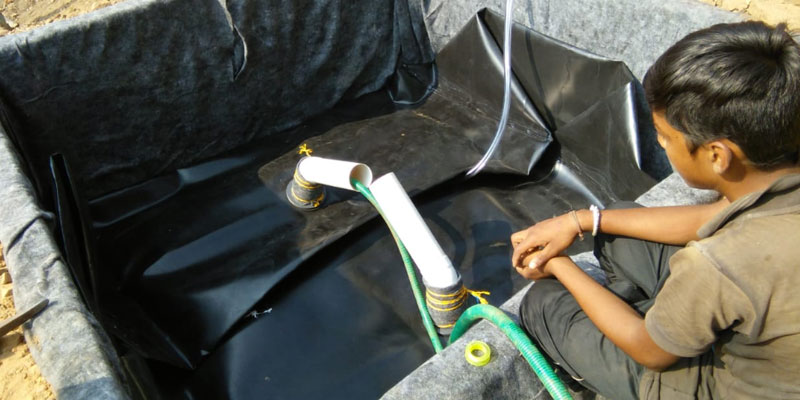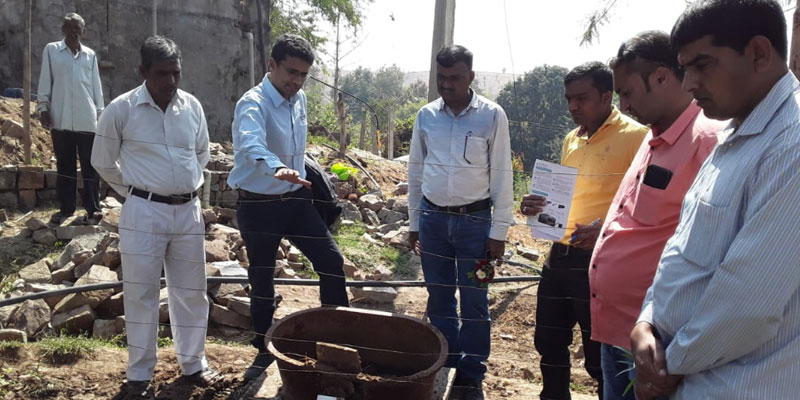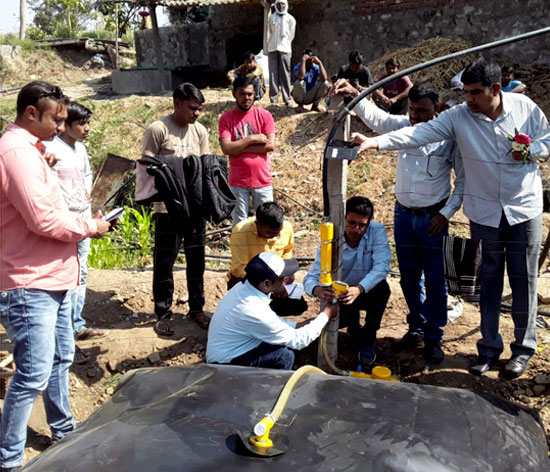
Collectives for Integrated Livelihood Initiatives (CInI), the nodal agency of the Tata Trusts, has been persistently working on enhancing the quality of tribal lives through multi-sectoral activities such as creating livelihood opportunities, improving the health of tribal families, etc. The intervention of creating biogas facility at the household level further supports the cause of enhancing their quality of life. Biogas provides an improved cooking facility for the household without smoke, thereby reducing the risk of respiratory problems. It is a source of alternative renewable energy and reduces the drudgery of women of collecting firewood. Moreover, biogas has a better solution for waste treatment. Its byproduct (slurry) is used as a biofertiliser in the agriculture fields, thus resulting in an enhanced productivity.
Considering the benefits associated with biogas, CInI, along with Sistema.bio, has started a project to equip farmers with clean energy and biofertiliser in Dahod district of Gujarat. Sistema.bio is a biodigester system that receives organic waste and produces renewable energy in the form of methane-rich biogas. The system displaces the time and cost of collecting and using traditional fuel sources and allows for sustainable agriculture.
Phase I
Phase I of the project was undertaken in 2017 wherein biodigester systems were installed in 57 households. To begin with, the project team identified the beneficiaries by ensuring the technical requirements of cattle availability and an appropriate space for installation. It was also made sure that every beneficiary showed willingness and contributed an amount of Rs 8,000 against the total cost of the unit of Rs 47,500 along with labour contribution of digging the pit. Subsequently, to deepen everyone’s interest, all members of the family were oriented about its benefits and requirements. The unit was installed with technical guidance from the project team and monitoring visits were made to ensure regular feed in the digester and to keep a check on the installation flaws, if any. Slurry management was also focussed upon. Orientation and follow-up for the effective use of slurry was conducted. Moreover, to ensure a long-term use of the units installed, the project team emphasised on training and capacity building of various cadres such as beneficiaries, local technicians and the staff.
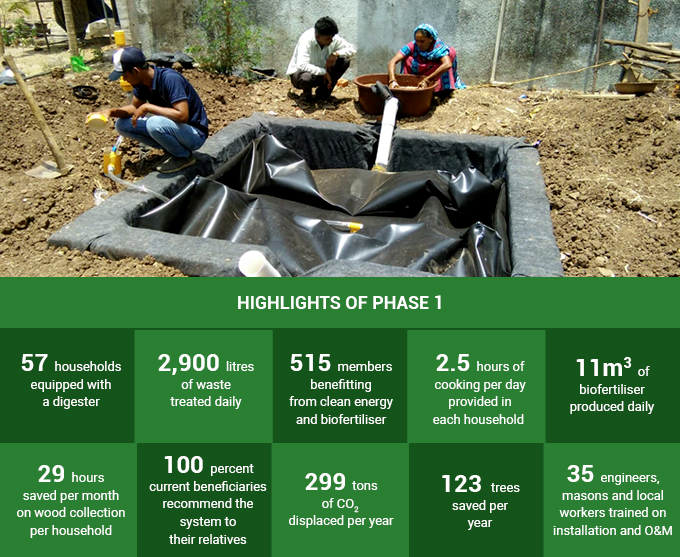
Phase II
Based on the success of Phase I, the project was scaled up in 2018 to extend the impact of biodigesters to 45 more families. The second phase was aimed at encouraging more financial ownership and commitment by the beneficiaries. The local community in Dahod district was made aware of the initiative by conducting on-field demonstrations at sites where these systems were installed earlier. Facilitating a conversation between old beneficiaries and new potential beneficiaries led to signups for Phase II. For every unit installed, the beneficiaries were required to contribute Rs 8,000 to receive the digester systems, while CInI and SELCO Foundation contributed an amount of Rs 39,250. Subsequently, the project team ensured adoption of the systems by conducting extensive monitoring visits to address usage and operational barriers like improper water mixing, less dung feeding, etc.
This phase was completed in January 2019 with the installation of biodigesters (6m³ capacity) in 14 villages of the district. By regularly feeding their digesters with cow and buffalo manure, the families have been improving their financial condition as well as creating a positive impact on the society and the environment. Several trainings on storage and application of bioslurry have been conducted since the completion of Phase II. Soil treatment and bed preparation, media preparation and composting are some of the many interventions that are being developed using bioslurry for farmers in the region.
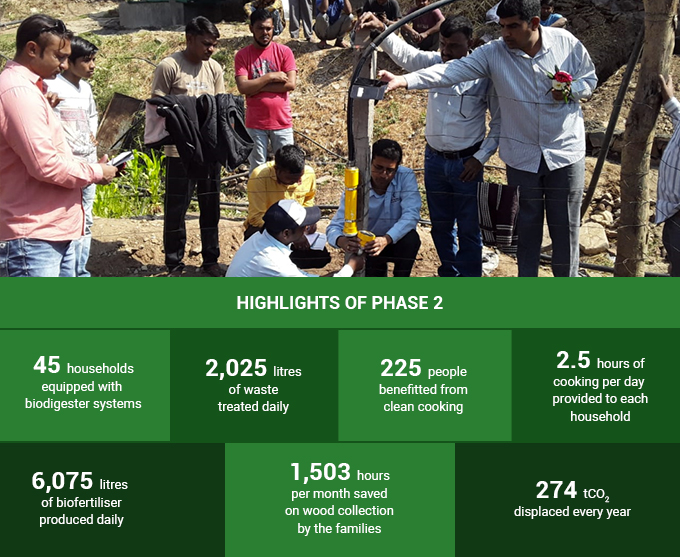
The way ahead
Since June 2019, CInI and Sistema.bio have been conducting long-term monitoring of Phase I beneficiaries as well as providing them with on-farm demonstrations and advanced bioslurry trainings. The project team will continue monitoring bioslurry integration into farm practices for all the beneficiaries involved in Phase I and Phase II and collect long-term data about the impacts on crop and soil health.
